SELF-REGULATION, EMOTION EXPRESSION & CLASSROOM ...
SELF-REGULATION, EMOTION EXPRESSION & CLASSROOM ...
SELF-REGULATION, EMOTION EXPRESSION & CLASSROOM ...
You also want an ePaper? Increase the reach of your titles
YUMPU automatically turns print PDFs into web optimized ePapers that Google loves.
Shields, 2004) and exhibit more positive classroom learning behaviors, such as a child’s<br />
attention/ persistence, attitude towards learning, and competence motivation (Schaefer<br />
& McDermott, 1999; Spinath & Spinath, 2005).<br />
These associations between a child’s developing self-regulatory abilities, on-task<br />
involvement and classroom learning behaviors are apparent throughout early childhood<br />
(Graziano, Reavis, Keane, & Calkins, 2007; Halberstadt et al., 2001; Miller, Gouley,<br />
Seifer, & Shields, 2004). For example, a child’s regulatory capacity has been found to be<br />
an important component in children’s achievement of classroom goals such as<br />
maintaining attention and sustaining positive peer interactions in preschool,<br />
kindergarten and into primary school (Adelman & Taylor, 1991; Graznio et al., 2007;<br />
Miller et al., 2004; Miller, Fine & Gouley, 2006). In addition, a child’s ability to<br />
alternately shift and focus attention, inhibit impulsive responding in classroom<br />
situations is linked to their early academic achievement (Graziano et al., 2007; Valiente,<br />
Lermery-Chalfant, Swanson, & Reiser, 2008). This finding may be, at least partially,<br />
attributable to results suggesting that young children who struggle with certain aspects<br />
of self-regulation – those who are persistently disruptive or uninvolved – tend to receive<br />
less instruction from teachers, have fewer opportunities for learning from peers, are less<br />
positive, less engaged, and less motivated as active learners (Arnold et al., 2006).<br />
These findings further bolster the view that self-regulatory abilities are critical, even<br />
in the face of the commonly held assumption that intelligence generally plays the<br />
primary role in children’s early academic achievement (Arnold et al., 2006; Blair & Razza,<br />
2



![[Sample B: Approval/Signature Sheet] - George Mason University](https://img.yumpu.com/21978828/1/190x245/sample-b-approval-signature-sheet-george-mason-university.jpg?quality=85)
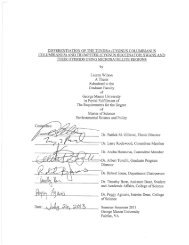
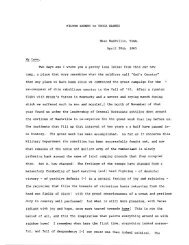
![[Sample B: Approval/Signature Sheet] - George Mason University](https://img.yumpu.com/18694905/1/190x245/sample-b-approval-signature-sheet-george-mason-university.jpg?quality=85)
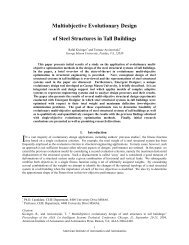
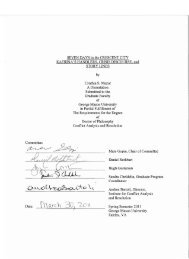
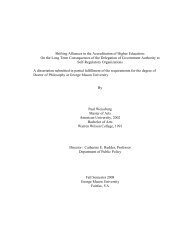
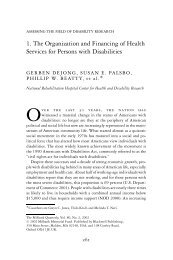
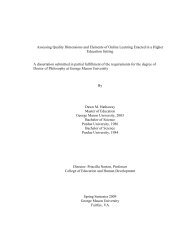
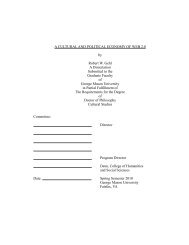
![[Sample B: Approval/Signature Sheet] - George Mason University](https://img.yumpu.com/18694552/1/189x260/sample-b-approval-signature-sheet-george-mason-university.jpg?quality=85)
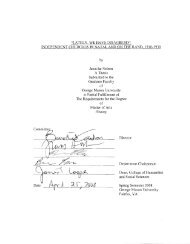
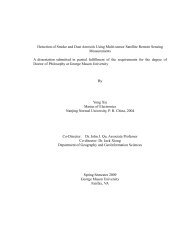
![[Sample B: Approval/Signature Sheet] - George Mason University](https://img.yumpu.com/18694474/1/190x245/sample-b-approval-signature-sheet-george-mason-university.jpg?quality=85)